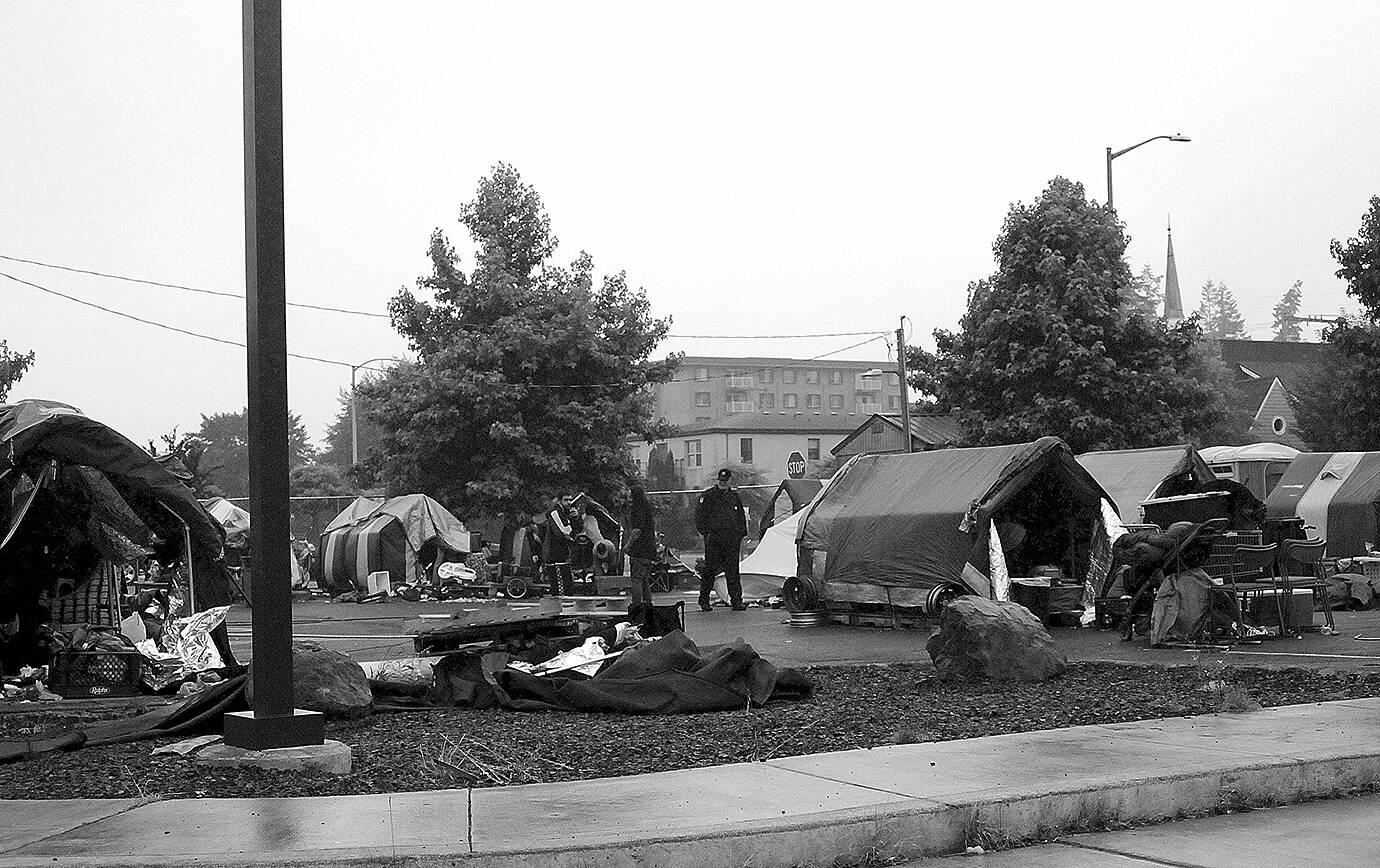About two months after the city of Aberdeen had the fencing removed from the homeless camp adjacent to City Hall, local officials are no closer to reopening the site for its intended purpose — a parking lot for city employees.
Local officials went ahead with plans to close the camp after the eviction moratorium in Washington sunsetted at the end of June. And, in an effort to find housing locations for the 20-plus residents at the time, Coastal Community Action Program staffers were on-hand the weeks prior to help the homeless secure other options.
As it turns out, the homeless had other ideas.
Some folks apparently didn’t leave the property in the aftermath of the camp being allegedly shuttered, and the site has since become populated with more homeless despite resources like fresh water, trash containers and toilets being removed. That’s problematic.
“To be totally honest, we are struggling,” Aberdeen Public Works Director Rick Sangder told the City Council at a meeting on Sept. 8 in a story published by The Daily World.
“The police have no ability to enforce, code enforcement apparently has no ability to enforce, and Public Works definitely has no ability to enforce” the evictions from the camp.
Sangder went on to characterize the situation as “bad.” Sangder also said he has reached out to third-party legal counsel for advice, but at the time of the meeting had no update.
“I’ve talked to the mayor (Pete Schave) about it and he’s looking to the third party counsel as well to try and help us figure out how to move forward and get that shut down,” Sangder said.
Good luck. Current city ordinances do not allow for evictions from camps on city-owned properties unless another overnight camping location is available.
Schave, who hasn’t had a whole lot to say about the issue, weighed in at the meeting on Sept. 8.
“We’ve asked our council to come up with something based on our ordinances that we’ve had in the past or that we changed not too far in the past to provide spaces for campers downtown,” Schave said. “What we also changed at that time was to take any criminal part out of the ability of the police department (to enforce evictions).”
The decision to take “any criminal part out” stems from a ruling by the Ninth Circuit Court of Appeals that requires the homeless be allowed to camp on public property if no other shelter was available.
But in a town with a number of empty buildings, parking lots and other spaces, there’s apparently not one place local officials can think of to house the homeless other than a site adjacent to City Hall.
If that is indeed the case, then bring back the resources that were taken away from the homeless camp and afford them a few basic necessities while local officials craft a solution to the problem.
That doesn’t seem like a whole lot to ask, does it?



